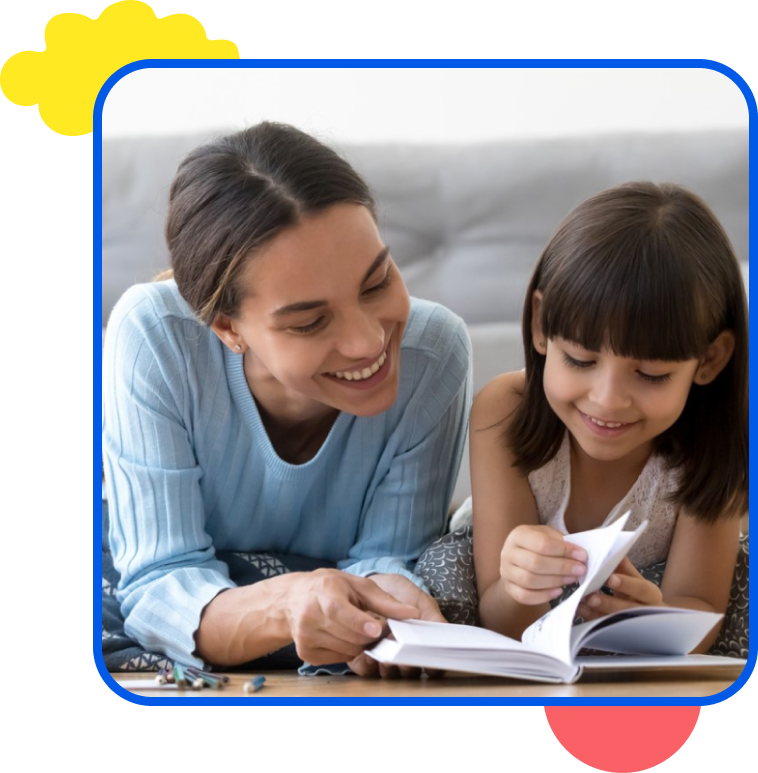11 Benefits of Learning a Second Language for Children



Did you know that learning a second language has benefits that extend far beyond just being able to communicate with people from other countries?
In fact, there are many benefits of learning foreign languages that can be enjoyed by both children and adults! Some of these benefits include improved cognitive abilities, increased cultural awareness, and even better problem-solving skills.
In this blog post, we’ll discuss the top benefits of learning a second language at an early age and address some common myths against language learning. We’ll also give parents some tips on how to help their child learn a foreign language!
11 Benefits of Language Learning for Children
Learning a foreign language takes a lot of time and dedication, no matter when you start. But, as an online language school, we know the benefits are well worth the effort!
Here are 11 of the top benefits of learning a second language as a child.
#1 Take advantage of the easiest time to learn a foreign language
Children’s minds are like sponges when it comes to language learning. Research has reflected that humans have a “critical period” for learning new languages. During this critical period, their brain is primed to quickly pick up correct pronunciation, grammar, and syntax. Post-puberty, their aptitude for learning a language is reduced. So, the earlier your child starts learning an additional language, the better!
#2 Enjoy cognitive benefits
Studies have shown that people who can speak more than one language are better at multi-tasking and focusing their attention than monolinguals. Research by Georgetown University Medical Center states that brain scans of bilinguals showed more gray matter in regions that involved executive function. One of the best ways to help kids become more intelligent is to expose them to multiple languages early in life!
#3 Foster a global mindset
Language and culture are very deeply intertwined. Therefore, when a child learns another language, they gain a cultural awareness and a deeper insight into how people from that culture see the world. In fact, some linguists believe the languages we speak shape our perception of the world. By learning a foreign language, your child can develop a more global perspective. This is something that is becoming increasingly important in our interconnected world!
#4 Access global information, media, and cultures
In our digital world, much of the information and media children consume is in English. While there are benefits to this, it also means that children who only speak English are missing out on a wealth of information and cultural experiences that are only available in other languages. By knowing a second language, children can access a whole new world of books, TV shows, music, history, art, comedy, and more!
#5 Make friends from foreign countries
One of the best benefits of learning a second language is the ability to make friends from all over the world! With social media and travel becoming increasingly common, it’s easier than ever to connect with people from other cultures. If your child knows more than one language, they’ll be able to communicate with their new friends without relying on translation apps.
#6 Develop more empathy and cultural sensitivity
Research shows that people who speak more than one language are more attuned to others’ emotions and better able to see things from another person’s perspective. This is likely because they grow to understand that there can be more than one way to view a situation. As the world becomes more interconnected, it’s important for our children to develop empathy and cultural sensitivity.
#7 Connect with your family’s cultural heritage
If your family has a heritage from a country where a language other than English is spoken, learning your family’s mother tongue can help your child connect with their ancestors and feel proud of their background. It can also be a way for them to connect with relatives who still live in the home country and only speak the native language.
#8 Become better at decision-making
Children and adults have to make a lot of decisions throughout life. According to research, bilingual people are better at problem-solving and making decisions than those who only speak one language. If your child starts learning a foreign language at an early age, they’ll develop the ability to think about multiple options and make decisions more easily.
#9 Develop a growth mindset
We all have to work hard to improve ourselves and reach our potential. People who know more than one language often have a growth mindset because learning a language requires you to continuously challenge yourself and push your boundaries. A growth mindset has been linked to success in all areas of life, so it’s definitely something you want your child to have and apply from an early age!
#10 Experience advantages at school and on standardized tests
Being bilingual can give children a leg up academically. Bilingual children often score higher on standardized tests and have an easier time understanding and retaining information.
#11 Have time to bond with your child
If you’re bilingual yourself or a foreign language enthusiast, teaching your child a second language is a great way to bond with them. You can share your love of the language and culture with them and help them to understand where you come from. It’s also a great opportunity to spend some quality time together!
5 Common Myths about Teaching Foreign Languages to Children
The benefits of learning a second language as a child are hard to refute. Yet, many people still fall into the trap of thinking that it’s a disadvantage or a waste of time because of some common myths.
Let’s take some time to debunk a few of those myths now so that you have no doubt you’re doing what’s best for your child!
Myth #1 – Learning a foreign language takes away time from more important subjects
Some people may argue that learning a foreign language takes away from time that could be spent learning other important subjects like math or science. However, studies have shown that children who learn a second language actually tend to perform better in these other subject areas. So, don’t let anyone tell you that your child is sacrificing their education by learning another language!
Myth #2 – It’s better to wait until kids are older to learn a second language
Some people believe it’s better for kids to learn languages once their brain and social skills are more developed. However, research has shown that the earlier children start learning, the better they become at acquiring languages. So, if you want your child to be bilingual or even multilingual, the sooner they start learning, the better!
Myth #3 – Learning two languages at the same time will confuse kids
This is perhaps the most common myth about language learning at an early age. Some people believe that if children learn two languages at the same time, they will become confused and won’t be able to learn either language properly. However, research has shown that this is not the case. In fact, kids who learn two languages simultaneously often develop a better understanding of both languages than those who learn them separately.
Myth #4 – People all over the world speak English so learning a foreign language is a waste of time
This is simply not true. While English is the most widely spoken language in the world, it’s estimated that only about 360 million people speak it as a first language. That leaves a huge portion of the world’s population who don’t speak English as their first language! Learning a foreign language can open up so many opportunities, especially if the language is in high demand.
Myth #5 – Children can only become bilingual if they live in a bilingual household
This myth is also not true. While it certainly helps if children are exposed to two languages at home, it is not necessary. There are many programs and schools that offer bilingual education. And there are many ways parents can raise bilingual children even if they don’t speak a second language themselves!
How to Help Your Child Learn a New Language
Learn together
While you need to know math to teach your child algebra, that’s not the case with learning a new language. Sure, it’ll be easier to teach your child another language if you’ve already mastered the basics; but it isn’t always necessary.
You can use this opportunity to learn new things with your child. It’s also an excellent opportunity to spend some quality time together doing something productive and valuable.
Plus, when your child sees you do something with pleasure, they will positively relate to the activity. This helps them develop a favorable attitude towards learning at a young age!
Play games in the new language
Children unconsciously learn a lot about the world through everyday activities. One of the best ways they learn and retain information is through games because having fun makes learning much easier!
There are a ton of games and activities designed to help kids learn a new language. If your child is learning French, check out these fun French learning games for kids!
Watch cartoons in the second language
Children love watching cartoons. You can take advantage of the shows they enjoy and help them learn a new language at the same time.
It’s also important to remember that simply reading and writing won’t help your child gain an overall grasp of the language. Listening and speaking are two other essential skills young children need to learn alongside reading and writing.
Watching cartoons is a brilliant way for kids to master speech through listening and repeating words and phrases. If your child is learning French, you can check out this list of French cartoons, many of which can be watched online for free!
Sing nursery rhymes and songs in the second language
Children can learn native pronunciation and new vocabulary with songs and nursery rhymes. Music is also a fun way to learn and often easier to remember than reading texts. Music can also reflect the history and culture of the language, which adds another dimension to your child’s learning.
No matter what language your child is learning, you can find many foreign language songs on YouTube. You can also find some of our favorite French songs by checking out our post on 10 popular French songs for kids!
Read children’s stories and books
Children’s books are another great way to give your child a strong foundation for a second language. Books for children include simple words, fun stories, basic grammar, and easy-to-understand language structure.
Helping your child establish a habit of reading books at an early age is also another benefit that will last a lifetime. If you’re looking for good books in French, check out our list of the best French children’s books!
Sign your child up for language classes
Language classes are a great way for kids to learn a new language in a structured setting. It’s also an opportunity for your child to interact with other children and a teacher who’s a native speaker of the language. Just be sure to choose a class designed for kids!
If your child is learning French, LingoCircle’s online French classes are designed for children based on their age groups and fluency. With no more than 5 children in each class, our native-speaking French teachers give personalized attention to every child and ensure they have a lot of fun while learning how to speak, read, write, and understand French.
Final Thoughts
There are many advantages to knowing more than one language. And the earlier you start, the better! So, don’t buy into the common myths that say kids shouldn’t learn a second language! Instead, support their language learning journey by following the tips we shared in this blog post!
And if your child is learning French, be sure to sign up for a free trial with LingoCircle today!


Simple Ways to Learn a Second Language at Home
Get resources and tips to help supplement your bilingual education journey at home.
By providing your email you are signing up to receive emails from Bilingual Bebe. Privacy Policy






